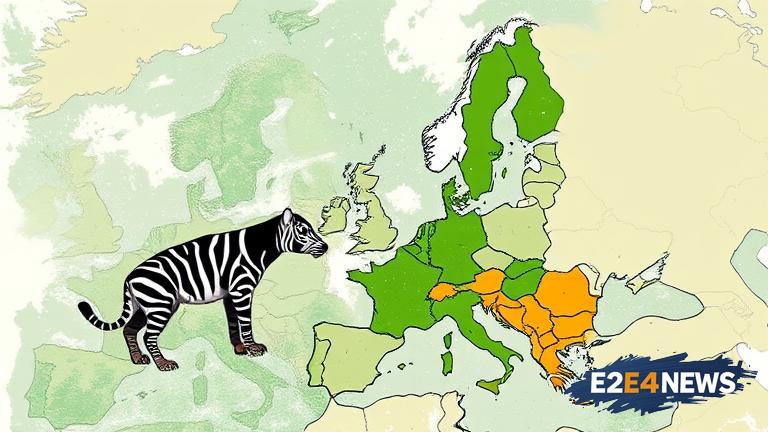The European Union has come under scrutiny for its handling of wildlife conservation, with renowned conservationist Chris Packham leading the charge. Packham, a prominent figure in the environmental movement, has expressed his disappointment and frustration with the EU’s lack of progress in protecting its rich biodiversity. Despite being home to a vast array of unique and threatened species, Europe’s wildlife is facing unprecedented threats, including habitat destruction, pollution, and climate change. The EU’s failure to effectively address these issues has sparked widespread criticism, with many arguing that the current measures are insufficient to stem the tide of biodiversity loss. Packham’s comments come as the EU is set to review its conservation policies, providing a crucial opportunity for reform. The conservationist has called for more robust and enforceable laws to protect Europe’s wildlife, as well as increased funding for conservation efforts. He has also emphasized the need for greater public awareness and engagement, highlighting the importance of educating citizens about the importance of conservation. The EU’s biodiversity strategy, which aims to protect and restore ecosystems, has been criticized for being overly ambitious and lacking in concrete actions. Many have argued that the strategy’s goals are unrealistic and that the EU is not doing enough to support conservation efforts. The impact of human activities on European wildlife is stark, with many species facing significant declines in population and habitat loss. The EU’s agricultural policies, for example, have been criticized for promoting intensive farming practices that harm wildlife habitats. Climate change is also having a devastating impact, with rising temperatures and changing weather patterns disrupting delicate ecosystems. The consequences of inaction will be severe, with many species facing extinction if conservation efforts are not stepped up. The EU has a unique opportunity to lead the way in global conservation efforts, but it must take bold and decisive action to address the scale and complexity of the crisis. Packham’s comments have sparked a wider debate about the EU’s role in protecting wildlife, with many calling for greater accountability and transparency in conservation efforts. The EU’s institutions, including the European Commission and the European Parliament, must work together to develop and implement effective conservation policies. The public also has a crucial role to play, with individual actions and choices having a significant impact on the environment. By working together, it is possible to make a real difference and protect Europe’s precious wildlife for future generations. The EU’s conservation policies must be based on scientific evidence and take into account the complex interactions between human activities and the environment. A more holistic approach to conservation is needed, one that recognizes the intricate relationships between species and ecosystems. The EU must also work with other countries to address the global nature of the biodiversity crisis, sharing knowledge and expertise to develop effective conservation strategies. Ultimately, the protection of Europe’s wildlife requires a fundamental transformation in the way we think about and interact with the natural world. By prioritizing conservation and sustainability, we can help to ensure a healthy and thriving planet for generations to come.
